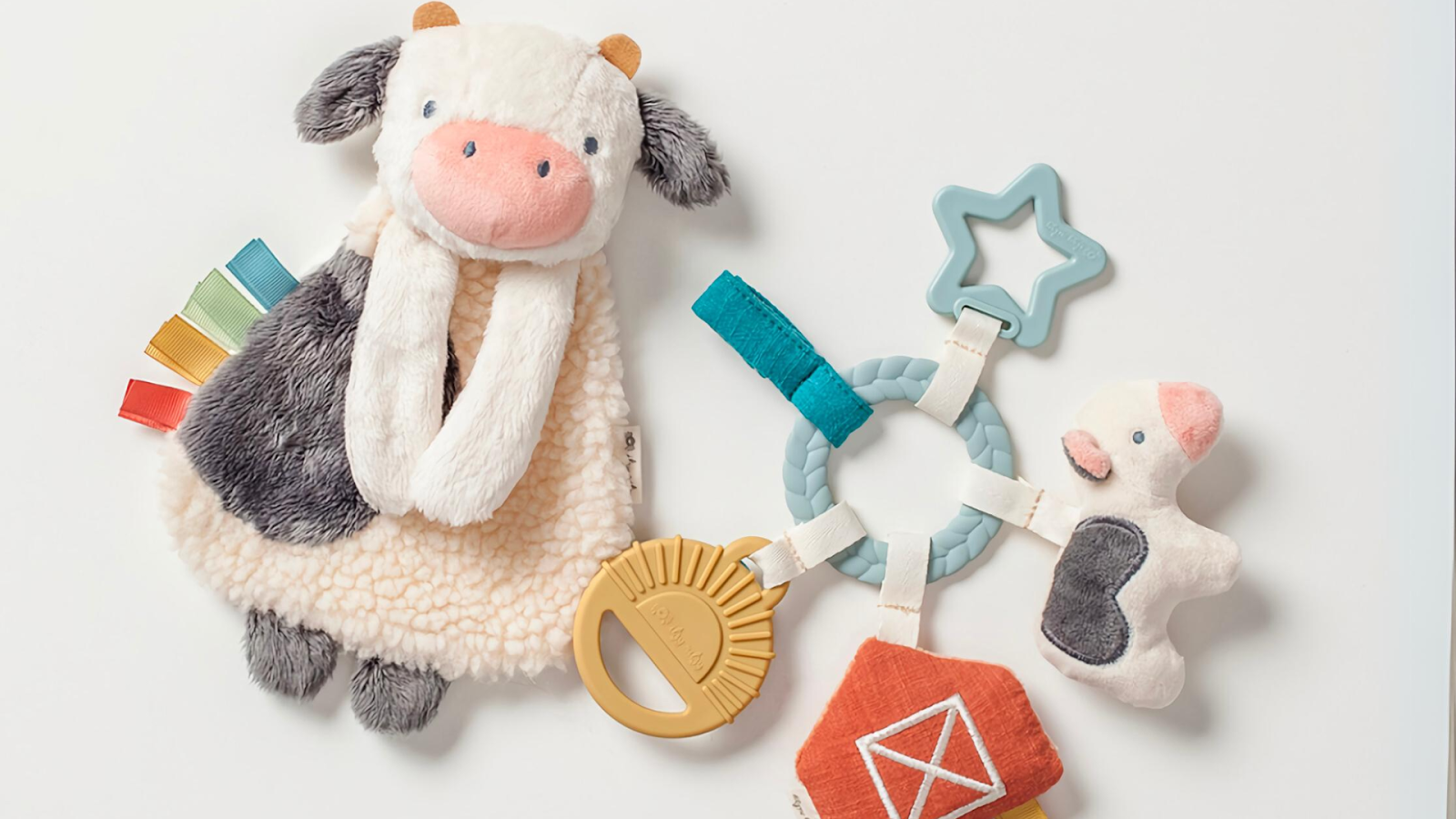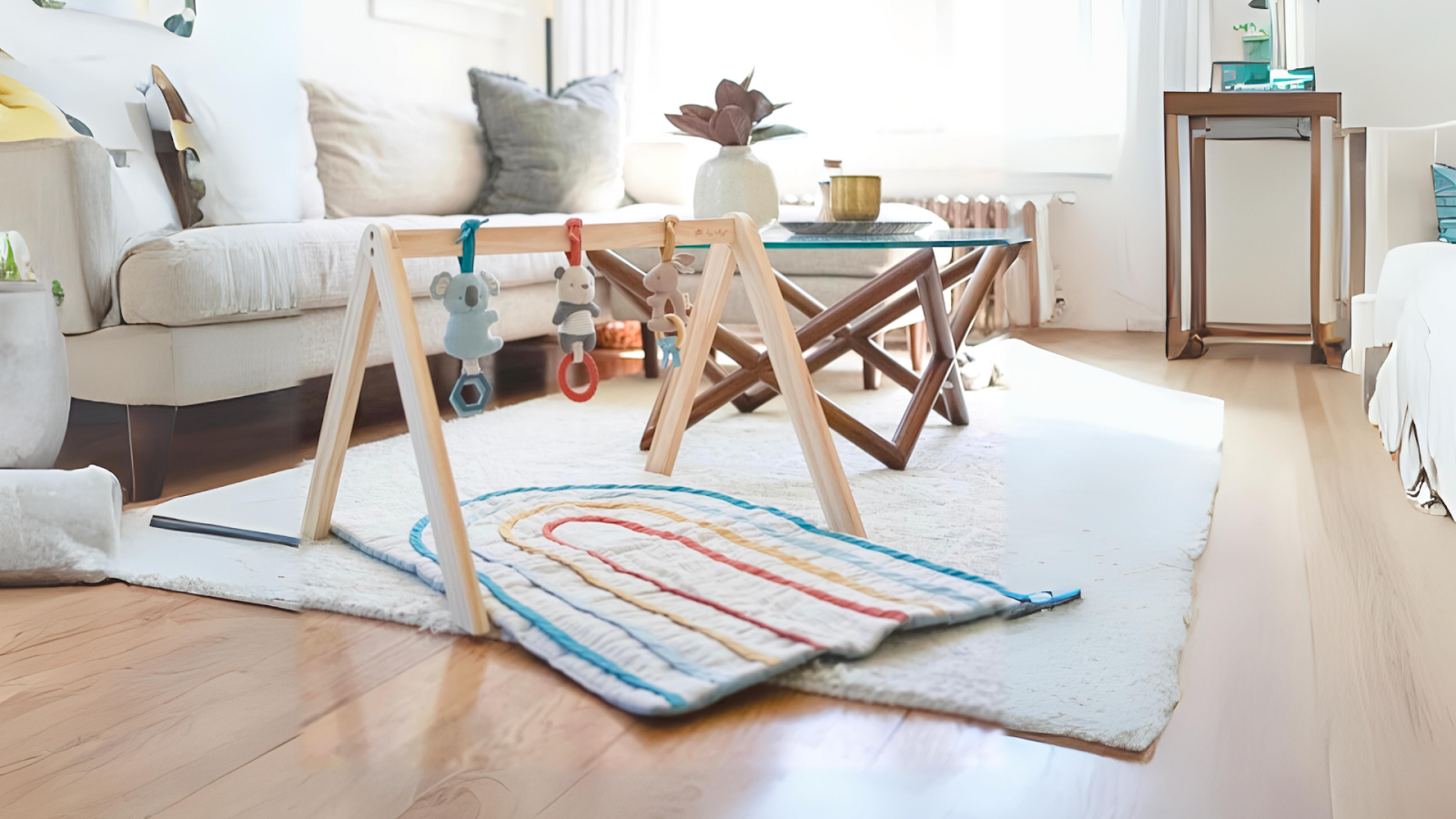Choosing the right toys for a newborn is more than just about entertainment. It's a critical decision that impacts their developmental milestones. From the very first days of life, toys play a pivotal role in stimulating sensory development, offering comfort, and laying the foundation for cognitive and emotional growth. As new or expectant mothers navigate the myriad of options, understanding the value of selecting toys that are safe, engaging, and developmentally appropriate becomes paramount.
Flaunt your parenting style and immerse yourself in the excellence of Itzy Ritzy - where functionality meets style! Check out our Itzy Ritzy FriendsTM Toy Collection which promotes exploration with cozy and soothing fabrics and materials, sweet characters and fun designs and features. Meet your babe’s new BFFs!
Understanding Newborns' Needs: Sensory Development And Comfort
Identifying Signs of Sensory Seeking in Newborns
Right from the start, babies begin to discover the world around them through their senses. You might see your baby mesmerized by the play of light and shadows, turning their head to catch new sounds, or calming down with the feel of different textures. Catching on to these little hints can help parents choose toys that truly capture their baby's interest and encourage their sensory development.
The Importance of Comfort Objects for Newborn Sleep and Security
Soft toys or blankets aren't just cuddly and cute; they're also key to making a newborn feel safe and sound, especially when it's time to sleep. Choosing the perfect snuggle buddy is important for supporting your baby's emotional health.
Criteria For Choosing The Best Toys For Newborns
When picking out toys for newborns, it's all about finding options that are safe, stimulating, and fun. Our toys for little ones check all these boxes, which is why so many parents love them.
Itzy Ritzy's Newborn Toys: Safe, Stimulating, and Fun
- Safety First: Crafted from non-toxic materials, Itzy Ritzy's toys are safe for newborns to explore, free from harmful chemicals and durable enough to withstand curious hands and mouths.
- Stimulating Sensory Play: Designed to engage sight, touch, and hearing, these toys support cognitive development through bright colors, varied textures, and gentle sounds.
- Comfort and Fun: Soft, plush toys offer comfort and fun, acting as soothing companions for nap times and playful partners during awake periods.
- Engagement and Bonding: These toys encourage interactive play, fostering emotional connections and creating joyful moments between parents and newborns.
Check out our Itzy Pop & Whirl™ Fidget Spinner Travel & Bath Toy, designed to engage your baby's senses and improve fine motor skills through playful learning.
Perfect for high chair entertainment, bath time fun, or on-the-go engagement, this toy combines fun with functional development.

Age-Appropriate Toys From Birth To Six Months
Newborn Stage (0-2 Months): Focusing on Sensory and Comfort
In their first few weeks, babies really get a lot from toys that play up to their sense of sight, sound, and touch, as well as those cozy comfort toys that make them feel safe and secure. Toys with bold patterns and soft, soothing rattles are just the ticket for catching their attention and helping their senses grow.
Transition Stage (2-4 Months): Introducing Interactive Toys
As babies start to wake up to the world and interact more, it's great to mix in toys that offer different textures, movements, and sounds to spark their curiosity and help their motor skills along. Soft books and mobiles that play soft tunes are perfect picks for this exciting phase.
Early Development Stage (4-6 Months): Toys for Motor Skills and Exploration
As babies get more curious and begin to explore with gusto, toys that nudge them to reach out, grab, and feel things, like soft blocks, play mats, and chewy teething toys, are fantastic for boosting their physical growth and coordination.
Picking toys that fit right in with their development stages means they're not just having fun but are also learning and growing.
Tips For Parents: Integrating Toys Into Daily Routine
Creating a Stimulating Environment with Toys
Incorporating toys into your newborn's daily activities is crucial for a stimulating developmental experience. Set aside time for active engagement with sensory and interactive toys to promote exploration and learning. Placing mobiles above the crib and offering a variety of sensory toys on a playmat can provide valuable visual and auditory stimulation during quieter moments.
Balancing Playtime and Downtime for Newborns
It's important to balance playtime with necessary rest. Watch for signs of overstimulation—like fussiness or avoidance—and ensure your newborn has time to rest with a comforting toy. These quiet moments are essential for your baby to process new experiences and learn.

Final Thoughts On Newborn Toys
Making the right toy selections for your newborn is about more than just filling their space with playthings; it's about carefully choosing items that will nurture their development, stimulate their senses, and provide comfort and joy.
The journey through the first months of a child's life is an extraordinary time of growth and learning. Toys are not merely for entertainment; they are essential tools that help unlock the potential within each newborn, fostering cognitive, emotional, and physical development.
That's why at Itzy Ritzy, we carefully curate our toy selection to support these crucial developmental stages. Explore our collection to find the perfect toys that blend safety, sensory stimulation, and fun, all designed to enrich your child's early learning journey. Shop today and see how our toys can become a part of your little one's growth and exploration.
Read Also:
- Tips and Tricks for Infant and Toddler Travel
- 8 Do’s and Don’ts for First Time Grandparents
- Five Tips for Marriage After Babies
Frequently Asked Questions
Can newborns play with toys from day one?
Yes, newborns can engage with toys as long as they follow age restrictions for safety. Soft, high-contrast toys can stimulate their visual development, though interaction will evolve as they grow.
How often should I introduce new toys to my newborn?
Introduce new toys gradually, aiming for variety over quantity. Every few weeks is a good pace, allowing time for your newborn to explore each toy's features fully.
Are electronic toys recommended for newborns?
It's best to limit electronic toys for newborns, focusing instead on sensory-rich toys that stimulate through textures, sounds, and visuals without overwhelming their senses.
What is the best way to clean newborn toys?
Clean toys regularly with mild, baby-safe cleaners or a mixture of water and vinegar. For plush toys, check washing instructions, as many can go in the washing machine.
Can playing music be considered a toy for newborns?
Absolutely. Music can be a powerful tool for sensory development, offering auditory stimulation. Soft, gentle music or lullabies are ideal for newborns.
How do I know if a toy is too stimulating for my newborn?
Watch for cues like fussiness or turning away, which can indicate overstimulation. Opt for simpler, soothing toys if your baby seems overwhelmed.
What should I do if my newborn shows no interest in toys?
Give it time. Interest in toys develops gradually. Keep offering a variety of toys, and try engaging with the toys alongside your newborn to spark interest.
Are there toys that can help with sleep training?
Yes, soft, comforting toys and sound machines that play gentle lullabies can be effective aids in establishing a sleep routine for newborns.
How can toys influence a newborn's motor skills?
Toys that encourage reaching, grasping, and tactile exploration can significantly enhance motor skills, aiding in muscle development and coordination.
What role do toys play in bonding with my newborn?
Toys provide opportunities for interactive play, fostering bonding through shared activities and enhancing emotional connections between parents and newborns.

